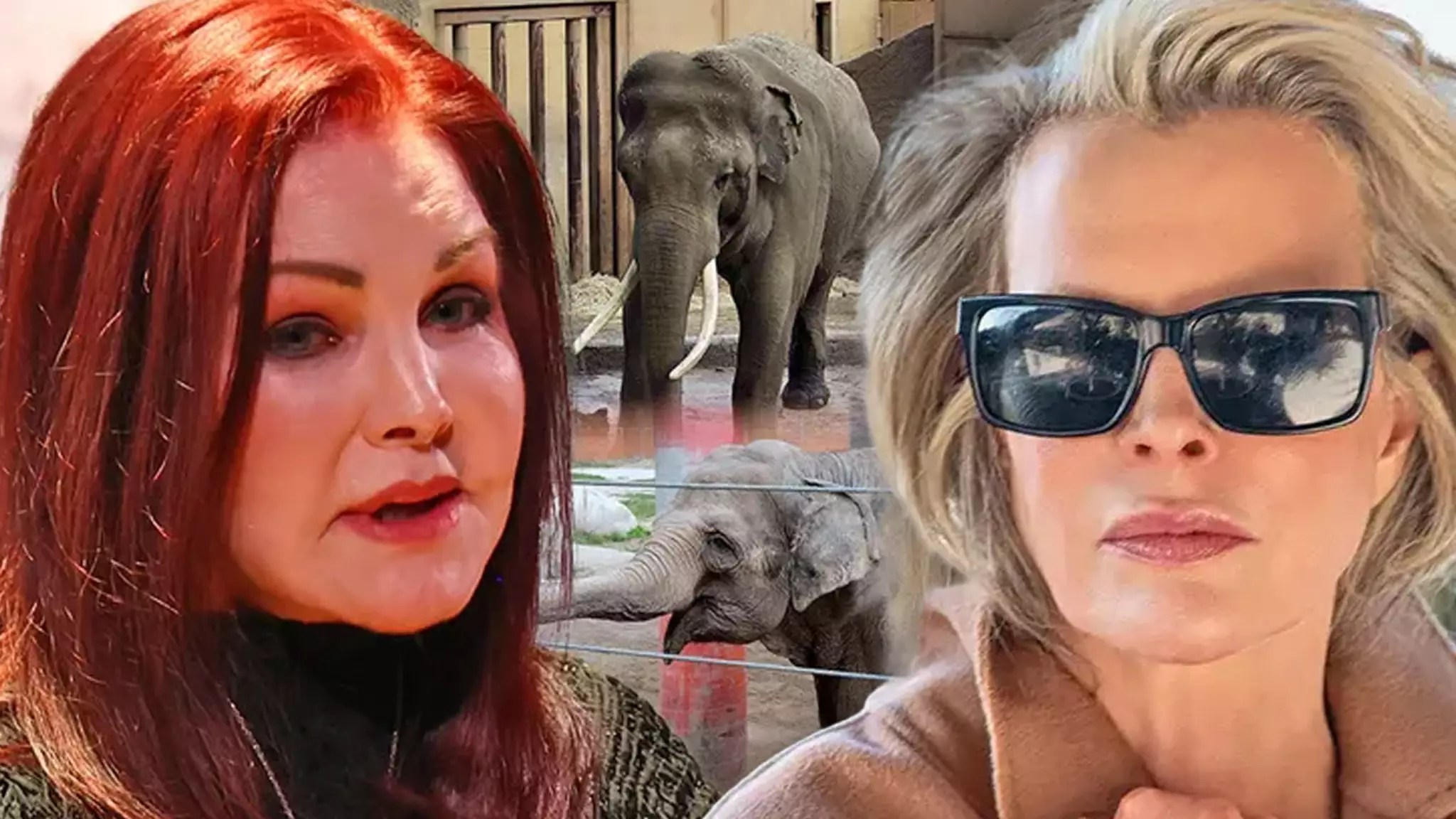The recent decision by the L.A. Zoo to transfer its remaining Asian elephants, Tina and Billy, to the Tulsa Zoo under the cover of night has ignited a passionate uproar among celebrities and animal rights advocates alike. The seemingly covert operation not only evaded potential protests but also highlighted the troubling dynamics at play regarding animal rights and the responsibilities of institutions to the creatures under their care. High-profile figures, including Priscilla Presley and Kim Basinger, are voicing their outrage over what they describe as “cowardly” behavior from the city officials involved and calling for a broader awakening regarding the treatment of captive elephants.
In a world brimming with noise, where decisions are often made far removed from the eyes of the public, the plight of Tina and Billy is a raw reminder of the disconnect between institutional policies and ethical animal treatment. Presley, who has been a staunch advocate for animal rights for nearly ten years, has leveled a comprehensive critique against the decision-making process that led to this transfer. She argues vehemently that Tina and Billy, having spent their lives in captivity, deserved much more than to be shuffled from one confinement to another. With her declaration to continue fighting for their release, it is clear that the emotional weight of this issue strikes a profound chord.
The Elephant in the Room: Celebrities Join the Fight
Kim Basinger’s comments further underscore the frustration felt among activists and the public. Her unwavering belief that relocating the elephants to a sanctuary should have been an obvious and humane choice highlights a significant moral failure at the systemic level. Basinger’s reactions reveal a palpable sense of anger towards Los Angeles’ mayor, Karen Bass, whom she accuses of lacking compassion and misusing her political power. This condemnation echoes a larger concern: is local governance failing to protect the interests of its most vulnerable inhabitants in the face of bureaucratic indifference?
The advocacy efforts by celebrities, which include a coalition of names such as Cher and Alicia Silverstone, illustrate the power of collective voices mobilizing for a common cause. By convening to challenge the status quo of elephant care, these public figures not only amplify their concerns but also engender a sense of urgency around animal rights issues that often get drowned out in everyday discourse. Their actions remind us that celebrity can be a potent tool for advocacy, capable of drawing widespread attention to causes that might otherwise go unnoticed.
The Sanctuary Solution: A More Compassionate Approach
The crux of the matter lies in the concept of sanctuary versus captivity. Critics have pointedly described the circumstances those elephants face in zoos — primarily confinement and a lack of natural social structures — as a form of cruelty. The very notion of forcing these majestic animals into another zoo situation is an affront to the moral fabric of society. Billy, at 40, and Tina, at 59, have already spent a lifetime in captivity; dispatching them to yet another cage poses significant ethical dilemmas about the future of wildlife management. As advocates like Presley stress, these elephants deserve “freedom, space to roam, and the peace of a true sanctuary.”
Moreover, the contention that the L.A. Zoo conducted a “comprehensive evaluation” before deciding to transfer them to Tulsa does little to assuage public concern. Such claims prompt skepticism, as the criteria for evaluation and decision-making often remain opaque to the public eye. By contrast, animal sanctuaries are designed specifically to accommodate the needs of such creatures, providing not just survival but a life worthy of their kind.
A Call to Arms: Collective Action for Change
The backlash following this incident serves as a stark reminder that the fight for animal rights requires relentless vigilance and advocacy. It calls on the community — celebrities, citizens, and activists alike — to remain engaged and demand systemic changes in how society as a whole perceives and treats animals in captivity. The zeal shown by Presley and Basinger signifies that it is not merely about the plight of two elephants but speaks to a broader ethical crisis that affects countless animals within similar frameworks of confinement.
As the conversation develops around these issues, it will be critical for public discourse to maintain pressure on those in power. Enough is at stake — not just for Tina and Billy, but for the future of elephants worldwide and the standards by which society chooses to uphold the rights of all sentient beings.


Leave a Reply